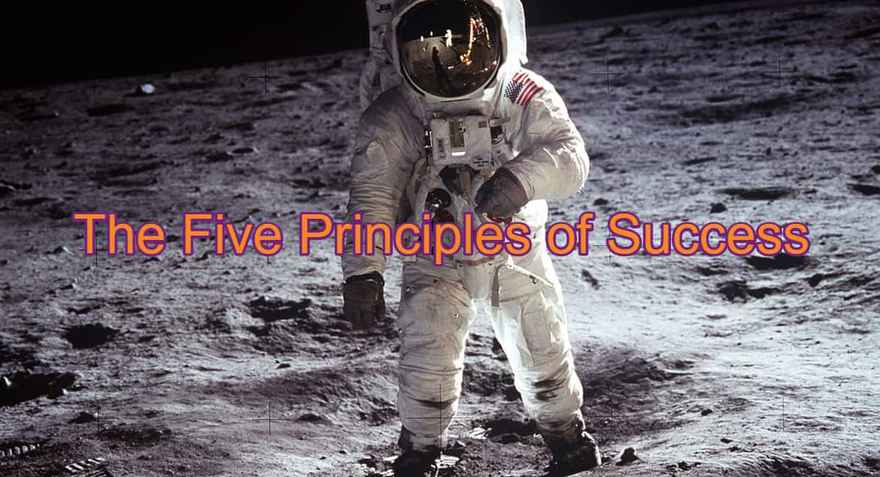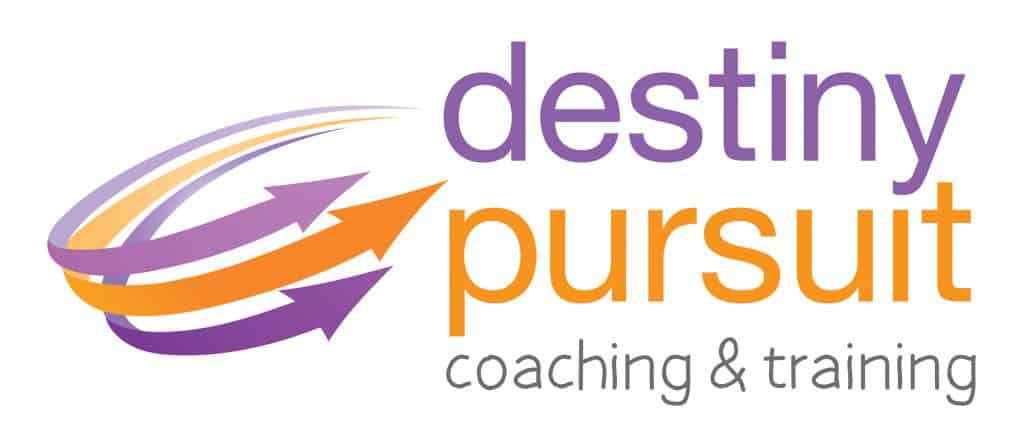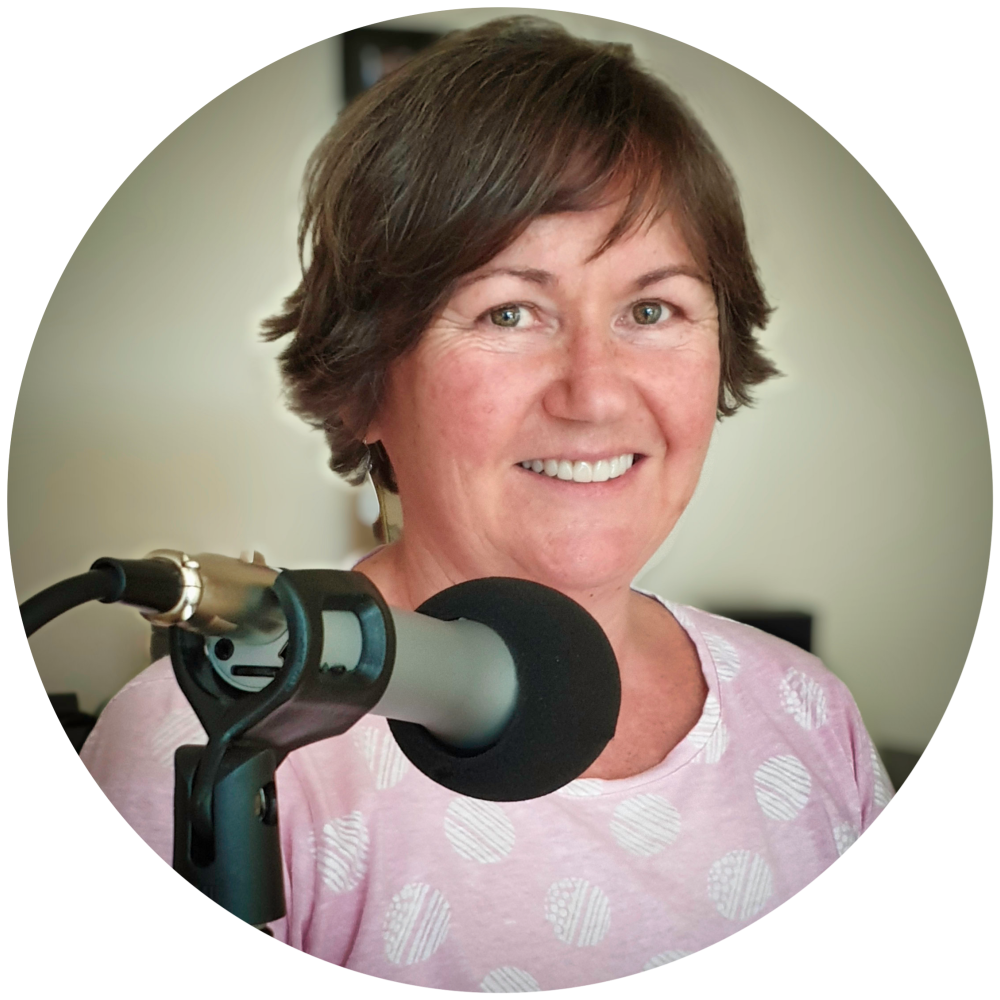The Five Principles of Success

The Five Success Principles are one of the most powerful tools from NLP (Neuro Linguistic Programming) and are a way of thinking and a way of operating in the workplace and at home to achieve whatever you would like to achieve.
One of the most common challenges for people, both in the workplace and at home, is the inability to change direction because they don’t have a clear outcome, or they feel as though they have to (or must) stick with an original plan or decision. This is not the case, and in fact can be a recipe for disaster, both financially and emotionally.
Decide today to live by these principles. You will be amazed at how simplified your work and personal life can be.
The five principles of success are:
Know your outcome
This is about knowing what you want and what you’re aiming for in any area of your life.
So many people go about living their lives just responding to what shows up. So if it’s a good day it’s a good day, if it’s a bad day it’s a bad day. There is no mastery over the results. ‘Stuff’ just happens.
If you want to be unstoppable in your day to day life and be in control of the results you’re getting you need to be clear about creating your outcomes (or your dreams) and that comes first. And then it’s about making it become a reality by aiming for it. This is about figuring out what you want from yourself, your staff, your colleagues, clients and your loved ones – whoever. Not just day-to-day, it’s about asking yourself: What intent I am having for myself today? What am I actually aiming to achieve? What would make this an outstanding day at work or even at home? What do I need to do to improve on the results from yesterday?
You’ve got to know what you want. At work as in life, what we focus on is what we get, so if you focus is on a problem, that’s what you’ll tend to get. So, what’s going to happen when you change your focus to the outcome you want? You’re going to empower yourself to create that outcome. It’s the universal rule that if you move your focus to the outcome you’re going to improve your results. Maybe it won’t happen right away, and it might take a bit of getting used to, but it’s about persistence.
Decide up front today - what outcome am I looking for?
The way you can do this is to act as if you have the outcome already and ask yourself: What’s the evidence that I am seeing that tells me I have the result? Keep asking yourself until you have your answer. Then work backwards and ask yourself: What must happen? What needs to happen? What do I want to ensure that I achieve the outcomes?
When we are aiming for a specific result it must always be about knowing your outcome first.
Take Action
This is about being willing to act. There can be no substitute for taking action. The best laid plans will not come to fruition if you’re sitting at work not doing what’s required (or on the couch watching TV!). You’ve got to be willing to act, to put yourself out there. There have been plenty of ideas that are outstanding, but have died for lack of taking action. Will Rogers said, that even if you’re on the right track, you are going to get run over by the train if you just sit there. You’ve got to be willing to take some steps, to build up some momentum.
Tony Robbins says that motion creates emotion. If we are emotionless, then there’s going to be some pretty ordinary emotions going on! If you’re building up motion by taking action after action after action, you’re going to start building up some really great emotions that are going to start working for you. On the other hand if we are cranky because we are not getting the outcome and focusing on what we don’t want, then our emotions will inhibit the outcome, or at least make it a difficult ride!
Sensory Acuity & Awareness
This is about knowing whether or not you are being effective, are you getting the results you wanted? This means you have got to start looking at your work and your life and know whether you are producing the results that you wanted from the actions you are taking.
This means giving yourself the opportunity to reflect and consider things from a rational perspective. And that’s really important because there’s no point in deciding on an outcome and acting and acting and acting and just keeping your head down and doing it and doing it and doing it, and never having the awareness to step back and say hey, is this working? Is this ‘doing’ getting me the results that I’m looking for? Take time out and look at whether you are actually making ground. Be honest with yourself.
Behavioural Flexibility
Always aim to have sufficient behavioural flexibility to change the actions if you are not getting the results you want. If the actions aren’t producing the results that you want, and you have awareness of that, then you’ve got to have the behavioural flexibility to change your behaviour and do things differently. How many times do you change your behaviour? Or, how much flexibility do you demonstrate? As many times and as much as it takes to get the result that you’re looking for. Change is a good thing and bending and being malleable is important also.
So, what result are you looking for, what action are you taking, what results are you noticing, and if it’s not the result you’re looking for what do you need to do differently?
Physiology & Psychology of Excellence
Create a physiology within yourself that’s going to assist you create the result you want. There’s no point in having a great workplace and going for it, and all the time your physiology and your psychology is indifferent, shrugging shoulders, stripped down and deflated with a voice that is kind of flat. You need to ‘yes, I’m really going for my outcome!’ You’ve got to create that physiology of excellence.
What this means is that you can conspire for the outcome that you’re looking for by coming from a place of excellence and noticing when negative thoughts are creeping in or you aren’t feeling energized. Take care of yourself first. That means rest and eat well, sleep well and drink lots of water. When you can do that, you are of more use and value to others.
Try this exercise and stand up and create a real physiology of excellence... breathe in deep into your lung and get that oxygen in…..that is going to support you all the time. How does that feel different to sitting down feeling like everything isn’t working?
Now the difference with this is very simple, anyone can have a physiology of excellence when the going is good, True winners, people who achieve their outcomes more often, are people who have a physiology and psychology of excellence even when the going is tough.
Make the commitment to step up in your life. And when the going gets tough, step up even more, and decide to adopt a physiology and psychology of being even more excellent. Think about what the results would be in your life if you did that. When the going got tough you stepped up and got more courageous, when you got a setback, you got more determined. Does that mean you’ll get the results every time? Maybe and maybe not, but will it increase your opportunities to get the results you want? Absolutely.
Can these Five Principles of Success change your outcomes?
Leave a comment below and let me know.
Smart Goals and the Five Principles of Success
Setting goals is one way to flesh out the first principle of success: KNOW YOUR OUTCOME.
If you are a leader or are interested in leadership, no doubt you are aware that setting goals is one of the most powerful ways to maximize your chance of success. You can identify a goal because to achieve it will always require some STEPS on the way. If there are no STEPS required then it is not a goal.
One popular model to use when setting goals is the SMART Goal Model.
SMART goals are:
- Specific
- Measurable
- Achievable
- Realistic
- Timely
Specific
A specific goal has a much greater chance of being accomplished than a general goal. Ask:
- Who is involved?
- What, specifically, do I want to accomplish?
- Where will it happen?
- What are the requirements and constraints?
EXAMPLE: A general goal would be, “I want to get fit.” A specific goal would be to, “Join a gym, go 3 days a week and eat take-away no more than once a week for 6 months.”
Measurable
Establish concrete criteria for measuring progress toward the attainment of each goal you set. Ask:
- How much? How many?
- How will I know when it is accomplished?
Achievable
If another person on the planet has done it then I can too. All I have to do is:
- Find out HOW they did it;
- Be really committed to achieving it no matter what;
- Taking whatever action is required to get me from where I am now to where I want to be;
- Check I am on track as I progress towards the goal;
- If I am not on track adjust my behaviour to get back on track;
- Have a real big celebration when I get there!
Realistic
To be realistic, a goal must represent an objective toward which you are both willing and able to work. Your goal is probably realistic if you truly believe that it can be accomplished. Additional ways to know if your goal is realistic is to determine if you have accomplished anything similar in the past or ask yourself what conditions would have to exist to accomplish this goal.
Timely
A goal should be within a time frame or there is no sense of urgency. If you want to lose 10 Kgs, when do you want to lose it by? “One day” won’t cut it. Your unconscious mind doesn’t respond well to generalities. Your goal must be concrete for your unconscious mind to gear itself towards it. You need to anchor it within a time frame, (eg “by May 1st”), then you’ve set your unconscious mind into motion to begin working on the goal.
Listen to Joanne talking Five Principles of Success on the InnovaBuzz Podcast
Joanne Clark
Joanne Clark is an Internationally accredited Master Trainer of NLP who has been delivering NLP training since 2011. Being on her feet in front of training rooms is where Jo loves to be and her passion for inclusive and immersive training that delivers outstanding learning outcomes is apparent to everyone in her training rooms. On average Jo delivers 140 days of training per year in addition to online webinars, guest speaker events and group coaching.
“NLP is at the core of all my training and coaching, it is at the core of who I am, how I interact and connect with people. I am absolutely passionate about spreading the NLP tools across the planet as I endeavour to support Robert Dilts’s vision of Creating a world to which people want to belong.” Joanne Clark
Certified Master Trainer of NLP; Master Practitioner NLP, Hypnotherapy & Matrix Therapies; Performance Coach; Cert IV Coaching; Advanced Practitioner in Coaching; Cert IV in Business; BA(Hons); Majors in Sociology and Psychology; Parent Education Leadership Training (PELT) Certificate; Mother of four children; Private Pilot (PPL); Diploma in Life Coaching


0 comments
Leave a comment
Please log in or register to post a comment